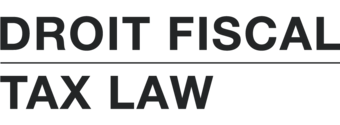
Photo by Andrea Piacquadio
The appellant was a businessman who made his fortune in the oil and gas industry. In order to fructify his capital, he decided to lend money to third parties. When two companies to which he lent money went bankrupt, he claimed business losses in relation to the loans he made to these two companies. The CRA reassessed him on the basis that these losses were not business losses, but rather capital losses.
Before the Tax Court of Canada, the issue to be decided was “whether the appellant was in the business of lending money or whether he was an investor”. If he was in the business of lending money, the loss would be considered on account of income. However, if he was an investor, the loss would be considered on account of capital. The Court concluded that the appellant was not carrying on a business (i.e., he was not in the business of lending money). Here’s the Court’s reasoning:
21 The definition of “business” in the Income Tax Act includes a profession, calling, trade, manufacture or undertaking of any kind whatever. As a result of this broad wording, the question of whether a particular taxpayer’s income comes from a business must be determined by looking at their whole course of conduct in light of the surrounding circumstances. Specifically, one should examine the number of transactions, their volume, their frequency, investment turnover, and the nature of the investments themselves, i.e. the overall level of activity. […]
24 The appellant’s success as a self-made businessman is admirable and the losses he experienced with respect to his loans to AFC and FCM are very unfortunate. However, I cannot find that he was in the business of lending money during the years under appeal because the positive indicia of a business were either absent or minimally present. For example, he used his own surplus funds for the loans, his AFC debentures were unsecured, his portfolio of borrowers was very limited, and there was no evidence introduced to support the conclusion that the number of loans was significant in the circumstances or that their arrangements were complex. It also does not appear that he negotiated terms with AFC, such as duration and interest rate; rather, his discretion seemed limited to deciding whether not to buy or extend a debenture.
25 With respect to advertising and promotion, he relied on word of mouth within his Calgary community and he screened potential borrowers by taking them out for social activities. To the extent that there were other actual or potential borrowers, he did not provide those records to the respondent at the discovery stage nor attempt to introduce any records at the hearing. It leads me to draw an adverse inference that he did not keep business records in relation to his lending activity; rather, the level of recordkeeping is more consistent with a non-business (i.e. investment) situation. The appellant has proven his business acumen with his pipe company and I cannot find that he went about his loan activities in an orderly, businesslike way, as a business person would normally be expected to do.
In cases such as this one, the facts hold the key to victory. Findings of fact are heavily influenced by the Court’s assessment of the credibility of the taxpayer’s evidence. Three factors undermined the taxpayer’s case in this instance:
- The taxpayer changed his position with regard to some answers he gave during the examination for discovery. Normally, when this happens, a party needs to inform the other party forthwith. Here, the taxpayer only did so shortly before the hearing began. The reason he gave (that “at the time he answered the written discovery questions, he was travelling abroad without access to his records and gave his response under time pressure”) was not accepted by the Court.
- The taxpayer’s testimony was vague and at times ambiguous. For instance, the Court noted that “he estimated that he spent three or four hours per day or week on his money-lending occupation and did not keep logs or records.” There is a big difference between spending three or fours hours “per day” versus “per week”.
- Related to the above point, the Income Tax Act requires that a taxpayer keep records and books of account for a period of at least six years. The taxpayer claimed to be carrying on a business, yet did not have these documents. This led the Court to draw an adverse inference that he did not keep books and records of his “lending activity”. The taxpayer’s position was even more untenable because he was a successful businessman in his “oil and gas” business.
